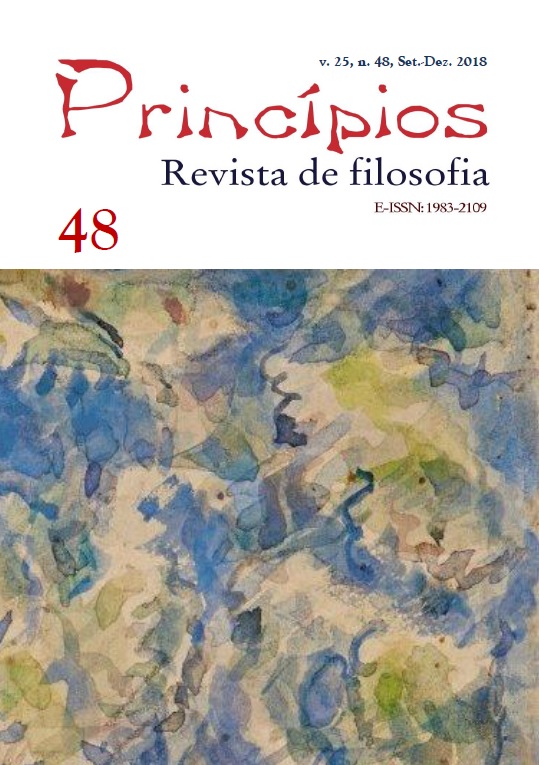Tragic, not absurd
on action in Hannah Arendt's work
DOI:
https://doi.org/10.21680/1983-2109.2018v25n48ID14298Keywords:
Action, Reconciliation, Tragic, Hannah ArendtAbstract
One of the central movements of Arendt’s The human condition is her analysis of the basic features of the activity of action, notably its capacity to start new beginnings in a web of human relationships. It’s crucial to Arendt emphasize the close articulation between action and freedom and between freedom and plurality. By this reason she argues that freedom can only be given in conditions of non-sovereignty. Notwithstanding, she thinks that within the realm of action can be found the remedies for its frailties: irreversibility, unpredictability, boundlessness and ambiguity, which are remedied by forgiveness, by promise, by “act in concert” and by the interchange of perspectives in a common world. In order to understand the meaning of the action is fundamental to realize that the sources of its dignity are the same as its frailty, and that the reconciliation with the tragic aspect of its non-sovereignty befalls by means of the potentialities of the action itself.
Downloads
References
ARENDT, Hannah. A vida do espírito. Trad. A. Abranches, C. A. R. Almeida e H. Martins. 3. ed. Rio de Janeiro: Relume-Dumará, 1995.
ARENDT, Hannah. O que é liberdade? In: ARENDT, Hannah. Entre o passado e o futuro. Trad. Mauro W. B. Almeida. 5. ed. São Paulo: Perspectiva, 2001.
ARENDT, Hannah. Reflexões sobre política e revolução. In: ARENDT, Hannah. Crises da república. Trad. J. Volkmann. 2. ed. São Paulo: Perspectiva, 2004.
ARENDT, Hannah. Sobre a revolução. Trad. Denise Bottmann. São Paulo: Companhia das Letras, 2011.
ARENDT, Hannah. The last interview (by Roger Errera). In: ARENDT, Hannah. The last interview and other conversations. Nova York: Melville House, 2013.
ARENDT, Hannah. A condição humana. Trad. Roberto Raposo. 13. ed. Rev. Téc. A. Correia. Rio de Janeiro: Forense Universitária, 2016.
NIETZSCHE, Friedrich. Genealogia da moral: uma polêmica. Trad. Paulo César de Souza. São Paulo: Companhia das Letras, 1999.
NIETZSCHE, Friedrich. Além do bem e do mal: prelúdio a uma filosofia do futuro. Trad. Paulo César de Souza. 2. ed. São Paulo: Companhia das Letras, 2003.
NIETZSCHE, Friedrich. Fragmentos do espólio: primavera de 1884 a outono de 1885. Trad. Flávio R. Kothe. Brasília: UnB, 2008.
TAMINIAUX, Jacques. The Thracian maid and the professional thinker: Arendt and Heidegger. New York: State University of New York, 1997.
VILLA, Danna. Arendt and Heidegger: the fate of the political. Princeton: Princeton University Press, 1995.
Downloads
Published
How to Cite
Issue
Section
License
Authors retain copyright and grant the journal right of first publication with the work simultaneously licensed under a Creative Commons Attribution License that allows others to share the work with an acknowledgement of the work's authorship and initial publication in this journal.


 Português (Brasil)
Português (Brasil) English
English Español (España)
Español (España) Français (Canada)
Français (Canada)


